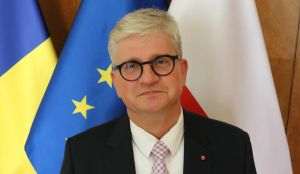The first semester of 2025 continued the whirlwind of political, economic and financial instability started in the canceled presidential elections and in the parliamentary elections of last year. Basically, in the first six months of this year, according to data from the Ministry of Finance, the National Institute of Statistics, but also international rating agencies and statistics from the European Commission, our country faced a period of maximum economic, financial, political and social tension. From budgetary and inflationary shocks, to the resignation of President Klaus Iohannis, replaced by the interim Ilie Bolojan, governmental instability and institutional crises, the country oscillated between the threshold of a fiscal collapse and the timid hope of an authentic reform.
All of this was statistically materialized in the budget deficit that reached 3.68% of GDP, at the end of June, in the increase in public debt that approached the threshold of 60% of GDP and the increase in inflation that at the end of June was 5.7%. In light of these data, our country seems to have reached a historical crossroads. For this reason, throughout the first semester, the National Bank of Romania decided to maintain the monetary policy interest rate at 6.5%.
The presidential elections in May, surprisingly won by the independent candidate Nicuşor Dan, the former general mayor of the Capital, reconfigured the political scene, and in June a pro-European government was formed led by Ilie Bolojan, who launched the first fiscal consolidation measures. In parallel, social tensions amplified, economic inequalities deepened, and investments were artificially maintained despite the decrease in revenues. With a new government, a pro-European orientation and tough fiscal measures, Romania seems to be finding its way back. It remains to be seen whether the current direction can be maintained and transformed into a coherent program of stability and sustainable development.
• January: The new year began with debts, inflation and a patrimony robbery with international echoes
January began with a tense economic context: the budget deficit reached 11 billion lei (0.58% of GDP), reflecting sharp imbalances between income and expenditure. Tax revenues were affected by a 1.4% decrease compared to January 2024, caused mainly by the reduction in VAT and European funds. Public spending increased by 4.5%, with increases concentrated in the areas of personnel (+18.6%), social assistance (+12.8%) and medication reimbursement (+18.7%).
Investments from foreign and domestic funds recorded significant reductions, by almost 45% and 28% respectively, compared to the same period last year, reflecting a hesitation of the authorities in starting new projects in an electoral context.
Politically and symbolically, January was marked by the robbery of the Drents Museum in the Netherlands, where several Dacian artifacts, including the famous Coţofeneşti helmet, were stolen. The incident generated a diplomatic crisis and led to the dismissal of the director of the National Museum of History of Romania.
On the fiscal front, the authorities in Bucharest received the approval of the ECOFIn Council of the medium-term budget adjustment plan. Government estimates for 2025 predicted a GDP of 1,912.6 billion lei, with inflation decreasing to 3.8%, but the first data of the year contradicted the optimism projected in the budget.
In light of the financial data above, the National Bank of Romania decided to maintain the monetary policy interest rate at 6.5% amid persistent inflation.
• February: Klaus Iohannis gives up the extended presidential mandate, Parliament adopts the state budget
February brought two major political events: the adoption by Parliament of the state budget for 2025 and the resignation of President Klaus Iohannis.
The budget was built on a projection of economic growth of 2.5% and a GDP estimated at 1,912.6 billion lei. Expenditures were set at 802.2 billion lei, and revenues at 667.5 billion lei, outlining a deficit of 7% of GDP. Social and wage expenditures continued to put pressure on the budget: 169.5 billion lei were allocated for wages, and 242.3 billion lei for social assistance. Despite these constraints, the budget included record investments of 150.5 billion lei.
The government continued the energy price cap program until July 1, 2025 for electricity and March 31, 2026 for gas, in parallel with the launch of the TEZAUR and FIDELIS programs that attracted over 9 billion lei in February.
On the political front, the resignation of President Klaus Iohannis, under pressure from an imminent suspension initiated by the opposition parliamentary parties - AUR, SOS, POT and which were to be joined by USR, generated unstability. Under these conditions, according to the constitutional provisions, the President of the Senate, Ilie Bolojan, took over the interim presidential office.
In legal terms, the National Anticorruption Directorate opened a wide-ranging investigation in the Port of Constanta, and former candidate Călin Georgescu was indicted for instigating unconstitutional acts, more precisely as an instigator of the overthrow of the constitutional order, but also for publicly promoting the acts of Marshal Ion Antonescu, Corneliu Zelea Codreanu, and the Legionary Movement. The Prosecutor General's Office established the measure of judicial control for Călin Georgescu, a measure that was extended throughout the first semester. Călin Georgescu's acolyte, Horaţiu Potra, fled the country, and the court issued an international warrant for his preventive arrest, in light of the seriousness of the acts he is accused of, including illegal possession of weapons and money laundering.
• March: Investments in energy and agriculture, the state - on the verge of instability
The first month of spring and the final month of the first quarter was marked by an intensification of strategic and electoral measures. The government allocated 1.2 billion lei for the expansion of gas networks, using funds from the sale of carbon emission certificates. In parallel, the Valea Jiului Energy Complex benefited from state aid of over 3.12 billion lei for the phased closure of the mines by 2032.
A partial exemption scheme from the payment of green certificates was launched for large industrial energy consumers, with a total budget of 578.4 million euros until 2031. Against the backdrop of the start of drilling in the Neptun Deep perimeter, environmental NGOs initiated lawsuits against the Minister of Energy, Sebastian Burduja, who in turn notified the Prosecutor's Office for the fact that the respective organizations undermine the national interest, and Prime Minister Ciolacu accused external interference in the country's energy strategy.
In agriculture, the Executive approved support of 1.5 billion lei for farmers, including 600 million lei for livestock breeders and 400 million lei for farmers.
The Start-Up Nation program for the business environment was relaunched with 440 million euros from European funds, aiming to support 7,500 entrepreneurs.
The government continued its policy of borrowing from the market in March, with the Fidelis and Tezaur programs attracting 4.3 billion lei to the state budget, which were used to cover the deficit.
At a strategic level, the CSAT approved an increase in the defense budget and the purchase of a multirole corvette, purchased directly from a Turkish company.
On the political scene, tensions increased after the Central Electoral Bureau and the Constitutional Court rejected the candidacies of Călin Georgescu and Diana Iovanovici Şoşoacă, followed by violent protests from Georgescu's supporters, who were left with criminal investigations.
Also in March, the paramilitary group "Vlad Ţepeş" - close to Moscow and whose leaders included retired general Radu Theodoru - was dismantled by DIICOT, and its members were accused of conspiracy and ties to foreign agents.
• April: Under the specter of the presidential elections in May, budget reforms were delayed
April was marked by a pre-election frenzy that led the authorities to postpone essential fiscal measures for budget consolidation. Although the Prime Minister and the Minister of Finance signaled the urgent need to reduce public spending, the Government launched a series of new social programs and aid schemes.
Budget revenues increased by 16% compared to April 2024, reaching 59 billion lei, while expenditures decreased by 1 billion lei. The cumulative budget deficit reached 2.95% of GDP. A differentiated tax rate was adopted for special constructions, and the Ministry of Defense received budgetary facilities for recruitment.
The government launched in parallel new grants for agricultural producers (342 million lei for vegetables, 1.5 million for livestock breeders who care for local pigs), and also established a Treasury loan mechanism for co-financing European projects, with an allocation of 1.5 billion lei.
Although the Executive adopted at the end of April amendments to the law on corporate governance for public enterprises, with an emphasis on transparency and selection criteria, in reality things have stagnated and AMEPIP has not carried out any real activity in the last three months of the first semester of this year.
Also in April, the Ciolacu government adopted a normative act on the simplification of construction permits to boost public investments made from European funds and funds from the state budget. In light of the need for permanent growth in budget revenues, the Finance Ministry reported at the end of the first four months of 2025 that through the TEZAUR and FIDELIS issues it attracted over 8 billion lei to the state budget, an amount intended to cover part of the budget deficit.
• May: Nicuşor Dan - president, Marcel Ciolacu resigns, the national economy stagnates
The presidential elections of May 4 and 18, 2025 represented a division in Romanian society but also in the political architecture of the country. Nicuşor Dan won over George Simion, after in the first round on May 4, the AUR candidate had 20% over the future president of the country. The first round was a shock for the traditional parties as long as the PSD and PNL failed to determine their electorate to push their common candidate, Crin Antonescu, into the second round. This led to the resignation, effective May 6, of Marcel Ciolacu from the position of Head of Government and President of the PSD. Following Ciolacu's resignation, the position of interim prime minister was taken over by Cătălin Predoiu - deputy prime minister and minister of the interior, and the position of interim president of PSD was taken over by Sorin Grindeanu. There was also a political earthquake at USR, where Elena Lasconi, in light of the poor score recorded in the presidential elections, resigned from the position of president of that political party, a position that was taken over on an interim basis by Dominic Fritz, who was later elected president with full rights by USR members.
In light of these movements on the political scene, the budget deficit rose to 3.39% of GDP in May, despite a 14% increase in tax revenues. GDP grew by only 0.2% in Q1, and the current account deficit reached 7.6 billion euros. Foreign direct investment decreased, and the trade imbalance deepened.
The interim government led by Cătălin Predoiu approved in May the budgets of strategic state companies (Romanian Post, CFR, CNI, Romtehnica, Romanian Lottery), ordered investments of 7.8 billion lei in railway infrastructure and granted 500 million lei for airport infrastructure, to cover expenses not reimbursed by the European Commission because investments at several airports in the country did not meet the maximum deadline of December 31, 2023, being completed only in 2024.
Also in May, the Ministry of Finance granted state aid of over 1 billion lei for the chemical, automotive, agri-food and aeronautical industries.
On the social front, we note in May the disaster at Salina Praid, which was flooded by the Corund stream following heavy rainfall, a disaster that once again highlighted the vulnerability of critical infrastructure, requiring European interventions and emergency government support.
• June: Bolojan Government is born with difficulty, tough fiscal reforms and an alarming budget X-ray
The interim government led by Cătălin Predoiu remained in office for 47 days, because the new governing coalition, made up of pro-European parties - PSD, PNL, UDMR, USR and the National Minorities Group in the Chamber of Deputies - had difficulty agreeing on the government program and what needs to be done urgently to correct the budget deficit and to remove the specter of the threat of our country being downgraded to junk status - not recommended for investments - by international rating agencies.
Nevertheless, on June 23, the Parliament invested the Ilie Bolojan government, which took office the same day, after taking the oath at Cotroceni Palace. The new Prime Minister, Ilie Bolojan, immediately announced austerity measures: increasing VAT from 19% to 21%, increased excise duties, limiting bonuses and reducing budget spending. In parallel with these measures, the new Executive ordered the extension of the cap on the commercial mark-up on food until September 30 (a measure that was introduced in July 2023) and approved the granting of energy vouchers/tickets of 50 lei/month for 2.5 million vulnerable consumers (budgetary impact: 1 billion lei), in light of the reliberalization of the electricity market starting from July 1, 2025.
According to the Ministry of Finance, the budget execution at the end of June, i.e. for the first six months of 2025, shows a deficit of 69.80 billion lei (3.68% of GDP), up from the previous year (63.67 billion lei). Although budget revenues increased by 12.7%, reaching 310.52 billion lei, boosted by the payroll tax and European funds, total expenditures amounted to 380.32 billion lei, 12.1% higher than in the first semester of 2024, reflecting increases in personnel expenses (85.46 billion lei), social assistance (126.57 billion lei), interest payments (25.23 billion lei), investments (50.44 billion lei) and co-financing of projects carried out from European funds (29.91 billion lei).
All this, in the context in which, at the end of June, ANAF reported revenues collected 245.22 billion lei, up 12.2% compared to 2024. However, the level of public debt is forecast to reach 60% of GDP, which represents a significant fiscal threat.
On the political front, also worth noting for June was the decision taken at the NATO summit in The Hague by which member states commit to allocating 5% of GDP to defense by 2035, a decision that requires a reconfiguration of the state budget for the next ten years. At the same summit, the Dutch government announced the donation of 18 F-16 aircraft to the Romanian Air Force.
After the NATO summit, President Nicuşor Dan convened a meeting of the Supreme Council for National Defense, a meeting in which tax evasion was included in the scope of threats to national security.
For the month of June, we also mention that the mandates of three judges of the Constitutional Court have expired, and in their place were appointed Mihai Busuioc - former president of the Court of Accounts, Csaba Asztalos - former president of the National Council for Combating Discrimination and Dacian Dragoş - one of the lawyers who supported the cause of the Romanian state at the International Arbitration Tribunal in the Roşia Montană case. After Marian Enache left office upon the expiration of his mandate, Ms. Simina Tănăsescu, member of the CCR since 2019, was elected President of the Constitutional Court. In place of Mihai Busuioc, the new President of the Court of Accounts is Mirela Călugăreanu, former president of ANAF, and in place of Csaba Asztalos, president of the CNCD, a person designated by the USR would be appointed.



















































